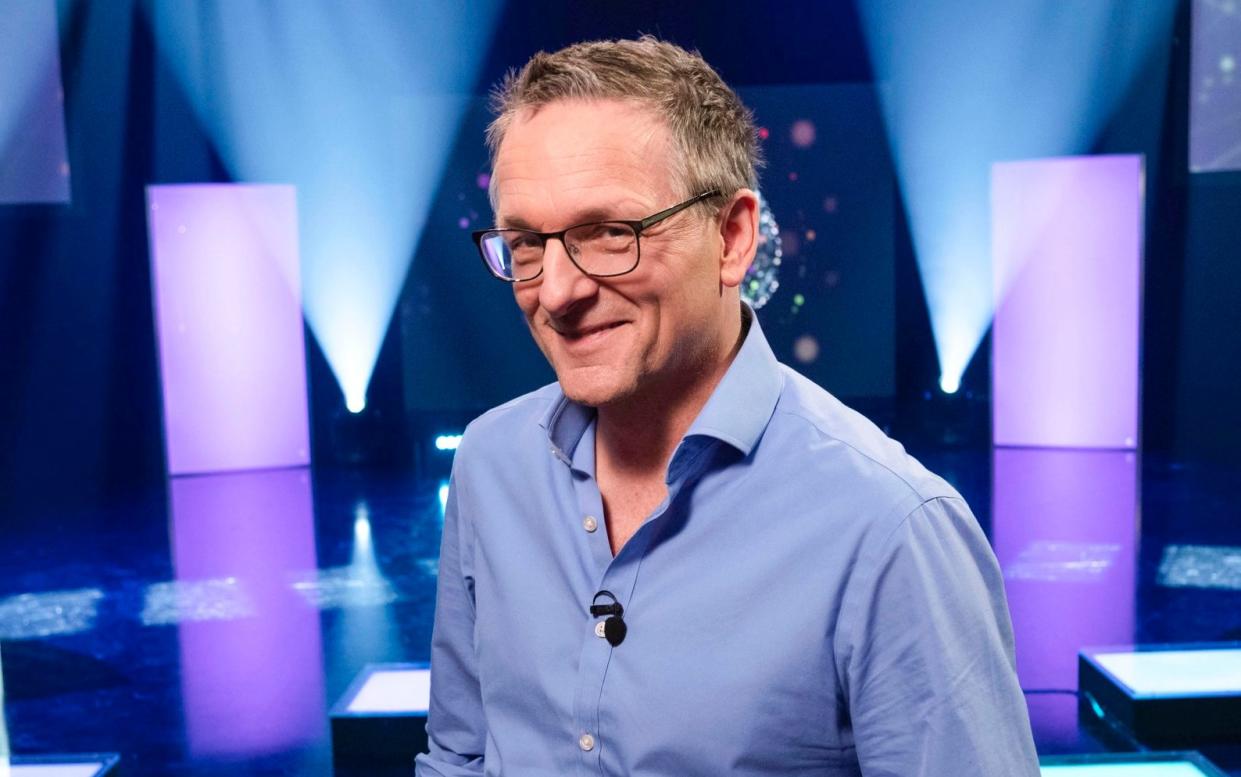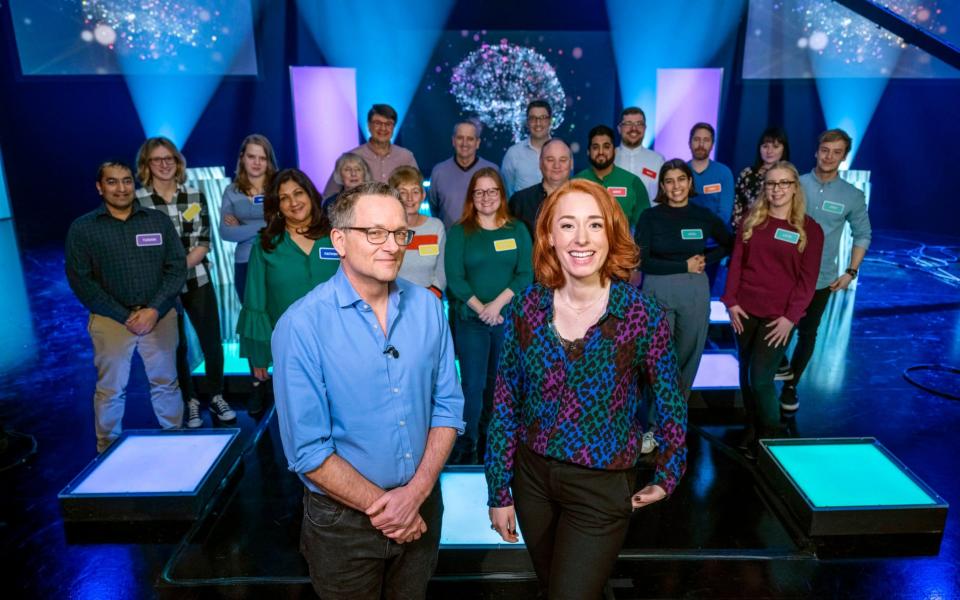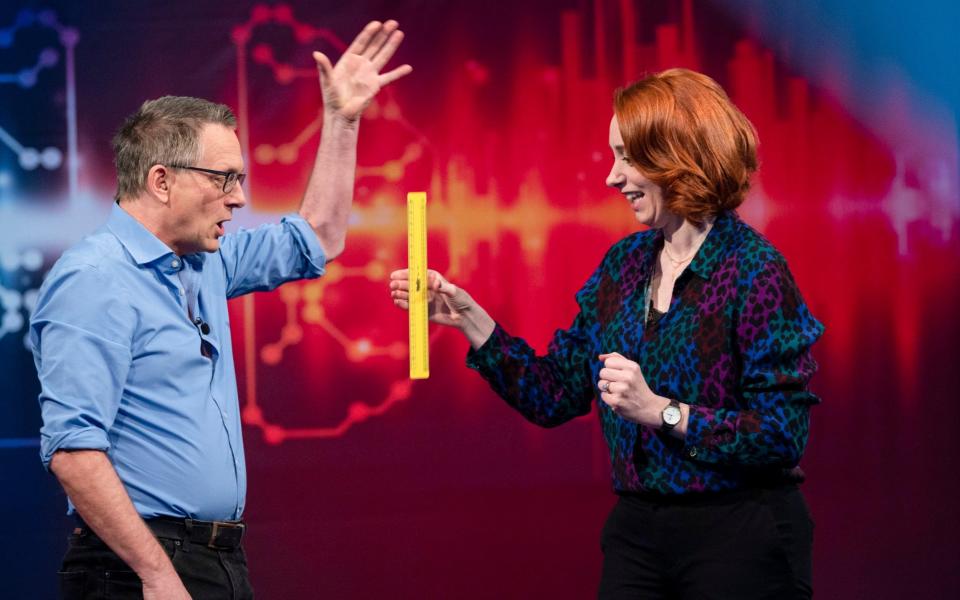Michael Mosley interview: 'Too much TV isn’t ideal under lockdown'

Are you smarter than a 12-year-old? Unfortunately, if you’re over 40, the answer is: possibly not. At least not according to the latest study on intelligence conducted by BBC Two’s Horizon and the Department of Brain Sciences at Imperial College London. After examining the responses of more than 250,000 people to an online quiz, researchers concluded that our problem-solving skills tend to peak in our 20s and then decline steadily as we get older, with the average 40-year-old having the same abilities as a 12-year-old.
Of course, it’s not quite as cut and dried as that, as presenter Michael Mosley reassures us. “There’s a difference between wisdom, problem-solving and reaction time,” he explains. “Obviously in the real world, problem-solving involves wisdom and insight too.”
In fact, the test, which was published on the internet at the beginning of the year, explores many different aspects of intelligence, from spatial intelligence to verbal working memory (the ability to memorise a sequence, such as a phone number), emotional discrimination (the ability to accurately identify facial expressions), and planning.
It also asks personal questions on sleep, exercise, social media use and mental health to see how they correlate. The large sample size makes the results fascinating.
“They were deeply thrilled, the scientists,” says Mosley. “Because they were just hoping 10,000 people would do it. They’re going to be crunching through this stuff for quite a long time.”
The highlights of the findings will be presented on tonight’s The Great British Intelligence Test, in which he and co-presenter Dr Hannah Fry demonstrate the test with a group of volunteers and dig into the data.
There’s much to chew over. Cat owners, it turns out, tend to have better vocabularies than dog owners (a correlation similar to one found by a team of scientists 10 years ago, who put it down to better-educated people working longer hours and choosing a pet that required less maintenance).
Meanwhile, the greatest problem-solvers live in Bristol and those with the best verbal abilities are in Midlothian in Scotland. Surprisingly, regular players of computer games scored better on tests of spatial working memory, attention and verbal reasoning. Those who never “gamed” at all scored much lower. And the more often people played, the better they scored.
This data is consistent with other studies, which have found that the best sorts of games tend to be high-action video games that involve a lot of quick decision-making and navigating around environments, because in doing so players are honing their spatial and memory skills (although other studies have shown habitual gamers damage another part of the brain called the hippocampus, which is one of the first areas to be destroyed by Alzheimer’s).

The 63-year-old Mosley admits, much as his teenage son was gleeful at the news, that he hasn’t personally been tempted to take up Call of Duty or Grand Theft Auto. But he does train his brain in other ways, playing Sudoku, and doing crosswords and brain-teasers in the newspaper.
Is there, perhaps, some snobbery in the greater value we attach to crosswords compared with computer games?
“There could well be, absolutely,” he says. “It’s a more traditional thing that people do, whereas shoot ’em up games are obviously very new.
“And I suspect that [crosswords] don’t consume quite as much of my life. When you’re doing one of those games, you can be lost in it for hours.”
But not all technology is good for us. One other finding of the study is just how close the link is between heavy use of social media and high levels of anxiety and depression – something that has not been found on this large a scale before.
Dr Lee Smith, a reader in physical activity and public health at Anglia Ruskin University, speculates in the programme that the link may be driven by the fact that social media presents people’s best selves, and encourages users to make “upward comparisons” – comparisons with people who seem better than them – in areas of their life such as body shape or career paths. It also “allows us to quantify our social success, in terms of the number of friends we have, the number of followers, the number of likes and shares that we receive” and so on.
Of course, ignoring social media isn’t easy to do at the moment. With no end in sight to lockdown, many of us are relying on it for everything from keeping in touch with our friends and family, to staying up to date with the news and doing home workouts.
Mosley himself says his social media use is limited to Twitter, but he does occasionally pop up, along with his children, cooking on camera in his wife’s food-based Instagram account. Mosley, of course, is most famous for devising the 5:2 intermittent fasting diet and his Mediterranean-based Fast 800 diet, and he’s married to GP and fellow health journalist Dr Clare Bailey.
They’re riding out lockdown at their home in Buckinghamshire, with two of their four adult children. He suspects they’ve all had and recovered from mild to “moderate” bouts of Covid-19 after his son Dan developed a fever and lost his sense of taste and smell.
Mosley says there is much we can do to take care of ourselves in lockdown, including eating well, doing exercise and not watching too much television.

“I love TV and I work in TV,” he says. “But I think it’s also a good idea to get away from the TV and get away from the news. If you can, get outside. Have a go at old-fashioned board games with your family. Or you can do it via Zoom.”
We should also be making the effort to keep in touch with each other, especially those who are on their own, as persistent solitude starves the brain of the stimulation it needs to maintain function.
“Loneliness is a real brain killer, as well as soul killer,” he says. “So do get in contact with your isolated, elderly relatives and encourage them to be in contact with lots of other people.”
The Horizon episode was filmed in a studio in Glasgow on February 21, a month before lockdown began. One other worrying thing we learn from the show is that, after a steady rise in IQ rates since the Thirties, they began to level and then drop in the Nineties.
We can only make educated guesses at the reasons, but Mosley suggests it’s because we’re out of shape, eating more junk food, not reading as much, and not challenging our brains in quite the same way. The brain is like a muscle, though, and we can train it to get stronger.
“Learn a new language, take up dancing, take art classes, something which has a physical element to it, which also is cognitively challenging, and gets you out of your comfort zone,” prescribes Mosley.
And for those who want to take the intelligence test on which this is all based, to see how you match up to the rest of the UK, it’s available online. Just take my advice: allow around 30 minutes, make sure you’re in a quiet room with no distractions, and save the lockdown G&T until afterwards.
Horizon: The Great British Intelligence Test is on BBC Two tonight at 9pm. To take the test go to gbit.cognitron.co.uk

